
It was meant to be a quiet year for Greencore CEO Patrick Coveney. The plan was to bed in US acquisitions Schau and Marketfare. But, as he concedes, “life is rarely that smooth”.
In February, Greencore was dragged into the Horsegate scandal when a pot of Asda chilled bolognese supplied by Greencore tested positive. It turned out to be a false reading, but the damage had been done. “Convenience food categories had been relatively immune from recessionary pressures but this year, for the first time - influenced by horsemeat - we saw a genuine slowdown and softness in volumes,” he says.
Before the crisis, beef-based ready meals had been growing at a comfortable 5% a year. But sales went into freefall in February and March. Coveney estimates the company will lose out on £15m of potential sales this year. “It is a material hit for us. The prepared meal division has been hammered in terms of profitability.”
Snapshot
Age: 42
Status: Married with four children aged 6 to 12
Height: A lofty 6ft 6
Education: University College Cork and Oxford
Career background: Before Greencore, Coveney was a high-flying management consultant working as a managing partner at McKinsey. He joined Greencore as chief financial officer in 2005 - despite having never worked as an accountant. In 2008, he was made CEO. He served as president of the Dublin Chamber of Commerce for 2012.
Famous family: His brother Simon Coveney is an Irish Fine Gael politician and, ironically, as minister for agriculture, food and the marine, was the man who ‘discovered’ the horsemeat scandal. His father Hugh was also a well-known politician and noted yachtsman.
Passions: He’s a very keen sportsman although nowadays more as a spectator than player. He loves sailing but his main passion is rugby. “I’ve played pro-Rugby for London Irish and am now on the commercial board of Munster Rugby”
Although sales volumes declined over the summer, Coveney is confident the picture is improving. That’s partly thanks to Greencore’s rapid response. Greencore put in place additional testing, improved factory hygiene and storage practices and cut back the number of beef suppliers it uses by about a third. retailers have in turn ordered more British meat and rationalised the supply base too - resulting in both business wins and losses for Greencore. “It was ultimately reassuring in terms of how we are regarded by our customers. The work we did quickly and in the public eye has been helpful not only to our relationships with customers but for them to think through the practices required to have more trust in the supply chain.”
But Coveney is less convinced increased demand from retailers for British meat will endure. “The focus on provenance was necessary given the uncertainty and lack of confidence in the spring. But I’d anticipate some of that will be unwound over the next couple of years. As trust is rebuilt I think we’ll begin to see products put together with perfectly safe and perfectly traceable supply chains from proteins that come from outside Britain. That’s important because it will make it easier to meet the very legitimate price and value expectations of consumers.”
Outside the ready meals category, Greencore has been performing well. In the 12 weeks to mid-August, sandwich sales rose 10% - thanks to the warm weather salads and quiches also performed well. And with the economy looking in better shape, Coveney is hopeful these figures will continue to improve. “We’re certainly carrying more momentum into this winter than last,” he says.
The US business is also coming into its own. Following the acquisition of Schau and Marketfare last year, Coveney expects the US to make a profit for the first time this year, albeit a modest one. He’s now confident the company has the right strategy to crack the US market, which it entered five years ago, when it tried and failed to sell ready meals to the big supermarkets in the north east of the country. “We couldn’t make ready meals work. You have a lot of food made in-store through much larger and better resourced in-store delis. We thought we could put a pre-prepared, somewhat premium, tailored US ready meal to replace what was made in the deli, but consumers didn’t want that.”
“As trust is rebuilt I think we’ll begin to see products put together with perfectly safe and perfectly traceable supply chains from proteins that come from outside Britain”
Greencore’s new focus has been on selling sandwiches to c-stores and coffee shops that don’t have the facilities to make food on-site. It’s currently supplying 1,985 7-Elevens and 1,363 Starbucks mainly along the east coast. By spreading into new regions and increasing the range it sells to these retailers, Coveney believes there is potential to increase its current US $250m sales - equivalent to 15% of group turnover - to something “far more material” over the next three to five years. “As the extra revenue comes on board and we become more experienced, we can also see a path to us comfortably reaching a similar return on sales to the UK,” he says.
Back in the UK, Coveney has also impressed analysts with the speedy integration of Uniq, which it bought in 2011 after his Northern Foods merger bid was foiled. Coveney believes the deal’s failure may have been a blessing in disguise - even if at the time he felt “like a bride left at the altar”. Because it was a takeover not a merger, the Uniq deal was more straightforward, with no messy boardroom reshuffles. Uniq was also a more closely aligned business, whereas Northern had branded and ambient businesses that Greencore wasn’t interested in.
Coveney believes this close alignment was key to the success of the acquisition. “I believe in the maths of category scale, but not corporate scale,” he says.
With no duplication of management and increased buying power in areas Greencore understood, the Uniq deal enabled it to deliver substantial synergies. It also brought the company a new customer in M&S and helped drive additional business with other customers, especially using Uniq’s capabilities in salads.
For Coveney, the effectiveness of his strategy is reflected in the recent performance of the share price, up 50% since the start of the year, despite Horsegate. “We’ve probably come out in a better place than would have been the case had we gone ahead with the merger with Northern Foods. A reasonable set of shareholder proxies for that is that our stock price has trebled in two years, our market cap is materially higher now than it has been at any time in the past six years. And only last week we ascended into the FTSE 250 Index.”







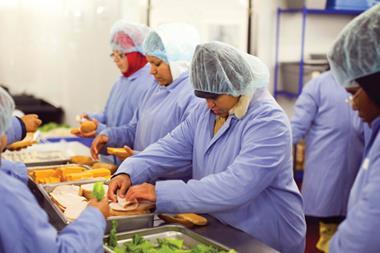


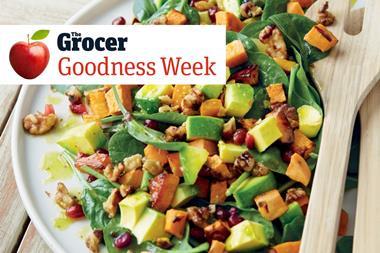


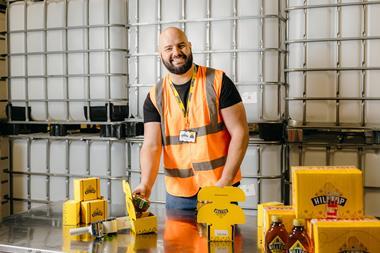
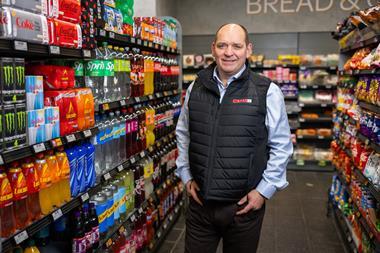
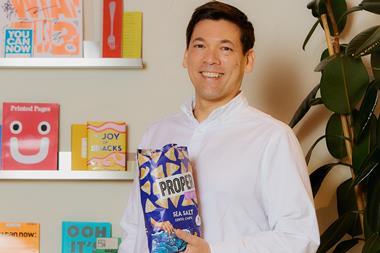
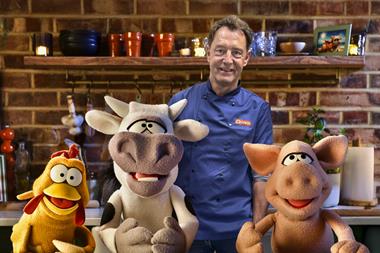
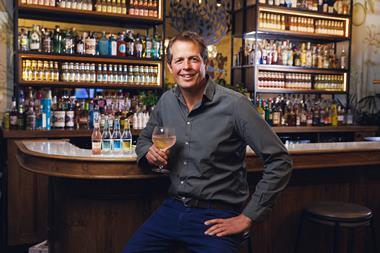
No comments yet